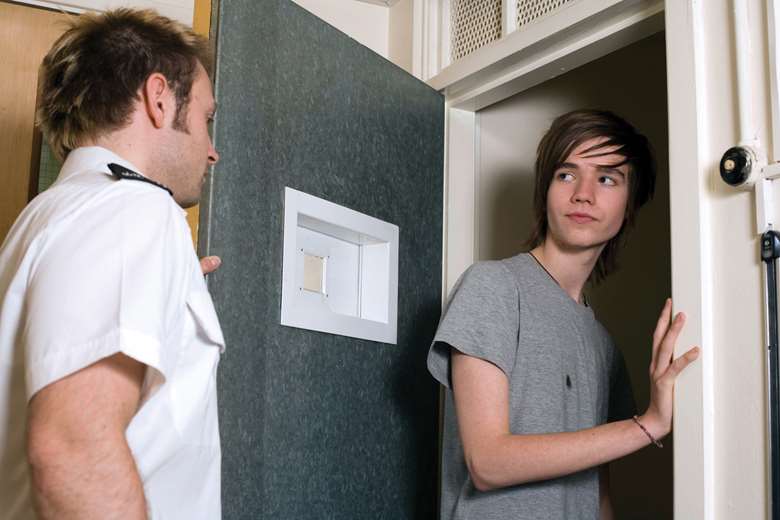Young people feel less safe in custody, survey reveals
Neil Puffett
Wednesday, December 10, 2014
Young people in custody are more likely to feel unsafe, experience mental health problems and be subjected to restraint than in previous years, a study has found.

A survey completed by young people in young offender institutions (YOIs) and secure training centres found that, in terms of their overall experience of custody, conditions had declined in 39 of the question areas compared to responses from last year's report.
By contrast, just five question areas showed an improvement on the results from the 2012/13 survey responses.
In the latest survey young people reported a poorer experience during their first few days, including feelings of safety on their first night, being offered help on arrival and information about being upset.
They were more likely to report having been restrained – 38 per cent in 2013/14 compared with 30 per cent in 2012/13 – and were also more likely to report having spent a night in the care and separation unit.
They were also less likely in 2013/14 to report that most staff treated them with respect and more likely to report having an emotional or mental health problem.
A higher proportion of boys said they were not involved in any activities at the time of the survey – 14 per cent compared with 10 per cent in 2012/13.
In terms of their background, one in three said they had been in local authority care at some point, 11 per cent said they had children and six per cent said they had a Gypsy, Romany or Traveller background.
Juliet Lyon, director of the Prison Reform Trust, said that, in the course of just one year, youth custody has deteriorated and boys report that they are less likely to feel safe, receive help or information or be treated with respect by staff.
She said: “The high numbers of children in care, teenage fathers and those with mental health problems or a disability attest to the need for specialist, intensive work with this age group."
Nick Hardwick, chief inspector of prisons, said that due to the survey results being self-reported perceptions and experiences, they “cannot answer on their own how safe, respectful and purposeful the youth custody estate and individual establishments are”.
He added: “However, this unique insight into children’s own perceptions of their experience of custody should be of importance to policymakers, academics and all who have a concern about the treatment and conditions of children in custody.
“What children tell us about themselves and their time in custody should be listened to and used, both to prompt further exploration of the questions raised by their responses and to help shape the major changes to the youth custody estate that are now planned.”
Lin Hinnigan, chief executive of the Youth Justice Board, said the organisation carefully considers the opinions expressed by those currently in the youth secure estate, alongside other sources of information.




